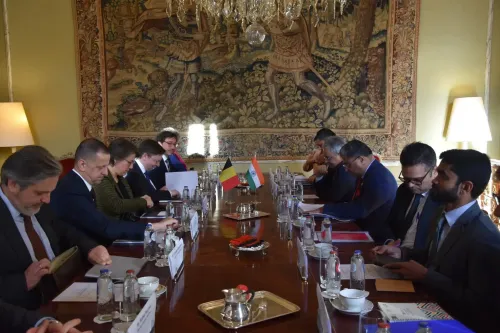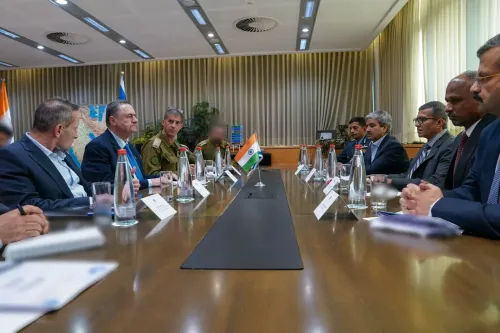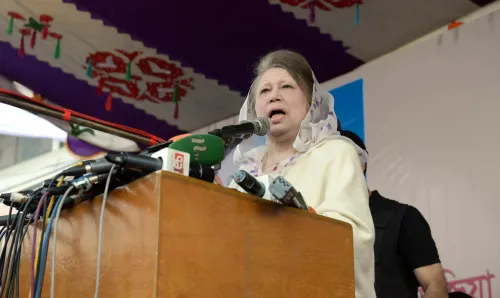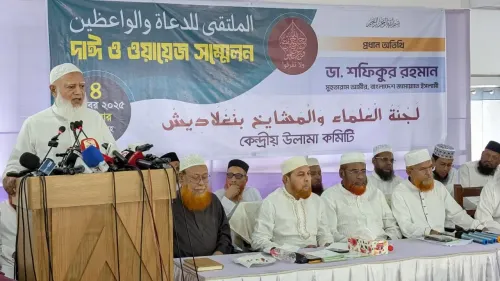Could Rohingya Repatriation Efforts in Bangladesh Face Challenges Due to Conflicting National Interests?
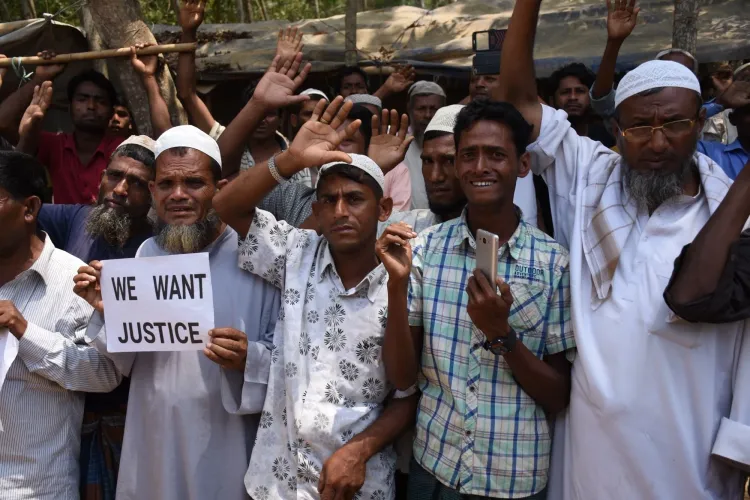
Synopsis
Key Takeaways
- The NSI is actively seeking US support for Rohingya repatriation.
- Geopolitical tensions complicate the repatriation process.
- A UN conference is scheduled to address the Rohingya crisis.
- Armed groups' dynamics are influencing the security situation.
- Myanmar's cooperation is crucial for successful repatriation.
Dhaka: The National Security Intelligence (NSI) of Bangladesh is actively seeking support from the United States to create a humanitarian corridor for the safe return of refugees to Myanmar. In pursuit of this goal, the NSI is navigating a complex political landscape by engaging with various political parties and even collaborating with organizations, including Islamist groups, to facilitate the repatriation of Rohingyas.
A significant conference addressing the plight of Rohingya Muslims and other marginalized groups in Myanmar is slated for September 30 at the United Nations Headquarters in New York.
In preparation for this pivotal event, the NSI discreetly conducted a series of meetings last month in Cox's Bazar with key representatives from the Arakan Rohingya National Council (ARNC) and the Forcibly Displaced Myanmar National-Representative Committee (FDMN-RC).
NSI Director General, Major General Abu Mohammad Sarwar Farid, tasked Shah Jahan, head of the Cox's Bazar branch, to oversee these discussions. The Bangladeshi intelligence agency aims to identify credible figures who could serve as legitimate spokespersons for the Rohingya within refugee camps, thereby facilitating their return to Myanmar. However, the challenge lies in pinpointing genuine representatives within the politically fragmented landscape.
This endeavor is complicated by associations some potential representatives have with drug trafficking networks, while others face accusations of jihadist radicalization. Additionally, both the ARNC and the FDMN-RC are perceived as being overly aligned with Dhaka.
Previously, the NSI concentrated on monitoring refugee camps for signs of unrest and potential external manipulation, rather than prioritizing repatriation, especially since it was reportedly involved in domestic political surveillance against dissenters.
Notably, the NSI has forcibly repatriated thousands of young Rohingya men, who were subsequently coerced by Myanmar's military junta to combat the Arakan Army, an ethnic rebel faction engaged in ongoing civil conflict. This radical restructuring has aggravated the humanitarian crisis and led to a continuous influx of new refugees across the border.
Many Rohingya now perceive the Arakan Army as a more significant threat than the military junta itself. Consequently, violence within the camps has decreased, prompting armed Rohingya groups like the Arakan Rohingya Salvation Army (ARSA) and the Rohingya Solidarity Organisation (RSO) to reposition strategically. The NSI is now leveraging these groups to pressure the Arakan Army into facilitating the return of refugees.
On September 15, the Arakan Army announced that the military junta had initiated a pre-emptive strike to maintain control over Sittwe and Kyaukphyu, which remain under its jurisdiction in Rakhine State. The junta is continuing to bombard Arakan Army-controlled areas, including the townships of Ponnagyun and Pauktaw, with artillery fire.
It is worth mentioning that Bangladesh’s Ministry of Foreign Affairs (MoFA) organized a three-day international conference titled ‘Stakeholders' Dialogue: Takeaway to the High-Level Conference on the Rohingya Situation’ in Cox’s Bazar, commemorating the eighth anniversary of the Rohingya crisis from August 24-26.
During the conference's inauguration, Muhammad Yunus emphasized the necessity of keeping the Rohingya crisis at the forefront of global discussions. He advocated for a dignified and secure return for the Rohingya refugees and stated that there exists a moral obligation to halt the ethnic cleansing of the persecuted Rohingya minority in Myanmar.
Under the leadership of Sheikh Hasina, Bangladesh has persistently attempted to facilitate the repatriation of Rohingya refugees to Myanmar. However, these efforts have been thwarted by Myanmar's uncooperative stance, regional geopolitical intricacies, and the refugees' justified fears for their safety.
More critically, tensions between Bangladesh and Myanmar have escalated in recent years, with the presence of the US in the region posing a potential risk for further aggravation. As such, the path to Rohingya repatriation appears fraught with challenges stemming from divergent national interests, underscoring a significant fracture in collaboration.
(The author is a specialist in South Asia and Eurasia, previously affiliated with the Manohar Parrikar Institute for Defence Studies and Analyses. The views expressed are personal.)

